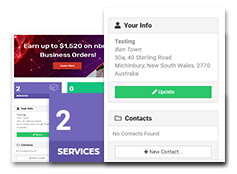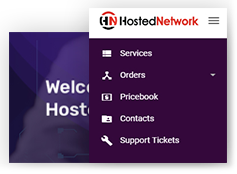Reading Mashable’s articles is a regular occurrence at Hosted Network. Earlier this month there was a particular post that intrigued us, “3 Essential Tips for Using the Cloud”.
The article started off with Jessica’s question to Mashable, “I’ve decided to trust the cloud for my business, but I’m still concerned about reliability. What can I do to make sure I can still access my data and applications if the cloud fails?”. This reader’s question to Mashable got us thinking, and we decided to write a blog post to answer her questions and show how we at Hosted Network meet the criteria.
Jessica’s question is one that we are sure many people would love to ask Cloud suppliers. As the term the “Cloud” is thrown around daily sometimes people get confused by all the hype behind the name.This then causes people to just notice the name, not the Cloud’s capabilities for their business or personal use.
Jessica’s main concern was about the reliability of the Cloud itself. Some features that we provide, that will give the user the peace of mind that the Cloud is reliable, includes:
Back Up and Management
At Hosted Network, our systems are 100% backed up with redundant offsite replication. This backup is for both individual files and complete server wide DR backup (Disaster Recovery). This gives the user the knowledge that they will NEVER have to worry about losing a file whilst using the Cloud.
Gone are the days where users would normally have to take a USB stick home with their data stored on it. Now with the use of the Cloud, users can have access to their data from any of their devices, anywhere and anytime. No more needing to worry about forgetting to take the USB drive to and from work, all of your data is safely and securely available to you from the Cloud.
Service Availability
The environment that we particularly run on is within a state of the art virtulised platform. Not a single server has to rely solely on one physical server. This ensures that if in the case of a hardware failure, the services are instantly and automatically restarted on alternative available servers.
The Cloud allows services to be restored within minutes, in comparison to traditional IT environments that would rely on hardware to be replaced which can take many hours at a time, possibly even days!
Security
As Jessica’s main concern was the precautions that she can take so that when the Cloud fails she will still have all of her data, we can confirm that the data you put into the Cloud is securely stored. The data is securely stored within servers that are located in a world class data centre. This data centre has many security measures such as 24/7 onsite security and biometric entry.
24/7 Support and Monitoring
To people like Jessica who are concerned with reliability and accessibility, we can confirm that we meet this criteria through our 24/7 Support and Monitoring. Our 24/7 Support includes email support and a specialised hotline that runs 24/7 for critical issues. The 24/7 Monitoring ensures that the services are constantly monitored making sure that the services are performing at its peak at all times.
What happens if the Cloud “Fails”?
The chances of the Cloud failing are slim, but still could occur on the odd chance. The above are preventative measures that are taken to ensure that your data is secure. Not only are all of the above precautions taken, but we also backup the data incrementally every day with full backups of everything weekly.
This then ensures that if the Cloud did happen to fail, your data is safe and accessible.
Conclusion
Researching about the Cloud Supplier is vital when considering the Cloud Desktop for business or personal use. Try to make sure you gather all information about a cloud supplier so that you know exactly what happens with your data, how you know its safe and the security in place that your Cloud provider has for your data. This then ensures that you know exactly what you’re dealing with, and how to make the most out of your Cloud technology experience.
When deciding whether you should move your business to the cloud, you should also factor in the great benefits it has for your business such as:
- Scalability: The Cloud allows scalability, scaling up and down as needed.
- Fixed Monthly Costs: Allowing you to accurately budget your IT expenditure.
- 24/7 Help: Allowing you to have the help you need, anytime and anyday.
- Software Updates: Allowing your business to stay up-to-date with the latest software for example, Microsoft Office.
- Cloud Based: Access your data anytime and anywhere from around the world.
If you had questions similar to Mashable reader Jessica, we hope that our Blog post helps you come to terms with the Clouds reliability and security factors. Jessica’s questions were extremely valid, and the answers are important to be known when looking at moving your business to the Cloud.
If you have any further questions or comments feel free to let us know below!
 Contact us
Contact us  Partner Login
Partner Login  Service Status
Service Status 


 September 10, 2013
September 10, 2013
 Taylah Hessio
Taylah Hessio
